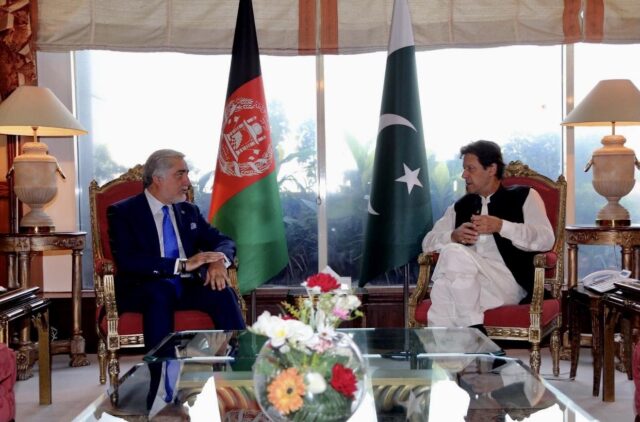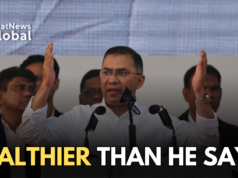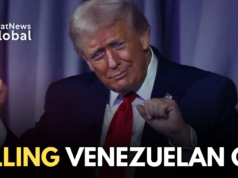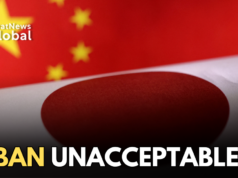New Delhi: “Tension between different countries impacts us adversely. We are aware of that,” Dr Abdullah Abdullah, Chairman of Afghanistan’s High Council for National Reconciliation (with the Taliban) tells StratNews Global on the India-China standoff. “Can we do anything about it? Absolutely not. We have to deal with our own situation and hope for a better future,” he adds.” Asked whether Delhi has to worry about Beijing’s increased interest in Afghanistan, the former Chief Executive in the National Unity Government with President Ashraf Ghani says, “It’s important to take into account the different, legitimate interests of different countries”
China’s State Councillor and Foreign Minister Wang Yi held a virtual quadrilateral with his Afghan, Pakistani and Nepali counterparts on July 27, where he proposed an extension of the Belt and Road Initiative (BRI) which India opposes. Dr Abdullah responded to a question on the online meeting by saying, “Connectivity projects like TAPI (Turkmenistan-Afghanistan-Pakistan-India pipeline) and others have not materialised because of the continuation of instability. We expect countries to help us in support of stabilization of the country.”
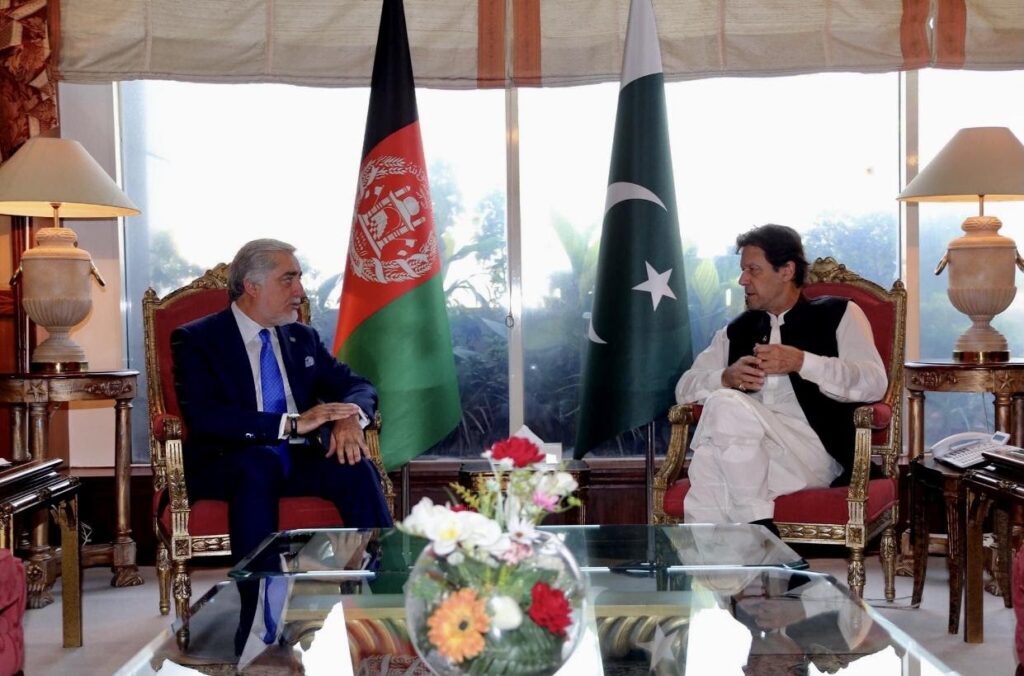
Asked about Pakistan’s doublespeak and signals that the Taliban can decouple from Islamabad’s deep-state, Dr Abdullah was evasive, saying, “good relations with our neighbours are in our interest. With the continuation of instability, the whole region has missed a lot of opportunities. Sometimes we have perceived national interest, sometimes we have legitimate national interest and real national interest. I think every country’s legitimate interest will be served when Afghanistan is peaceful, its people are unified, it is independent and has sovereign rights, rights of self-determination. Then Afghanistan will not only not be a threat to any country, but could create opportunities for the region to flourish.” On being pressed on the Taliban acting independent of Rawalpindi, he says, “Afghanistan should be independent of anyone based on our own country’s national security interest aiming to have friendly relations with (all) countries of the region.” Dr Abdullah made his first visit to Pakistan in his current capacity in end-September, where he met PM Imran Khan, the Chief of Army Staff, ISI Chief, senior ulema and think tanks.
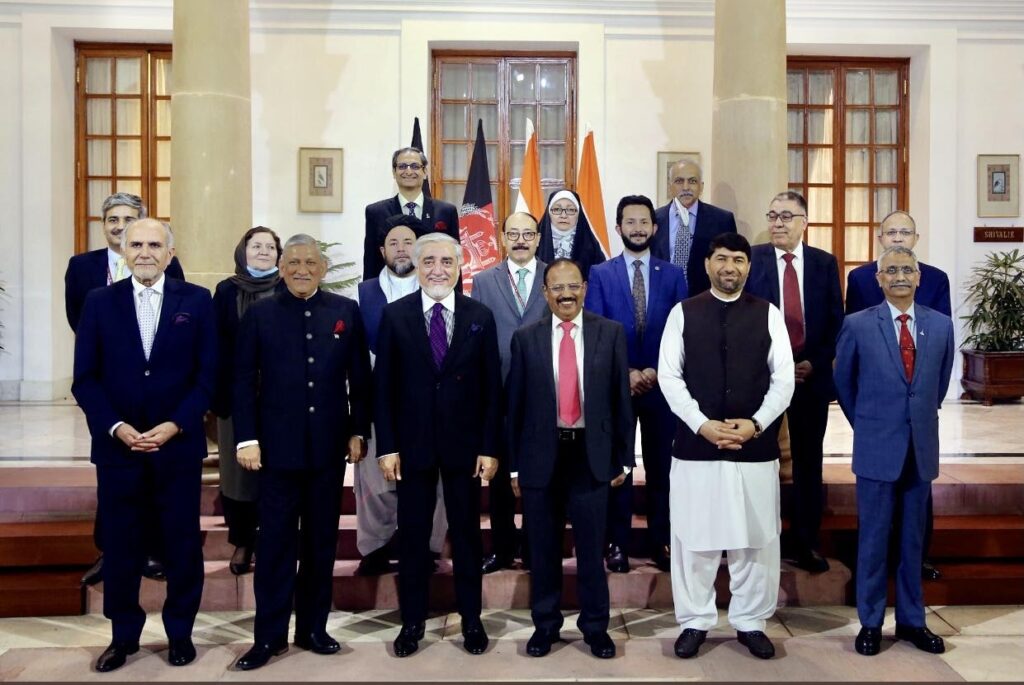
His next trip was to India where he told StratNews, “should they (India) engage with the Taliban, we won’t have a problem with that,” But, he made it clear he hadn’t “raised the issue or encouraged it” in his meetings with Prime Minister Narendra Modi or other leaders. He added, “should they (India) continue to have peace engagements in a different way like participation in Doha that’s also fine. That’s good. That’s what I really encouraged here.”
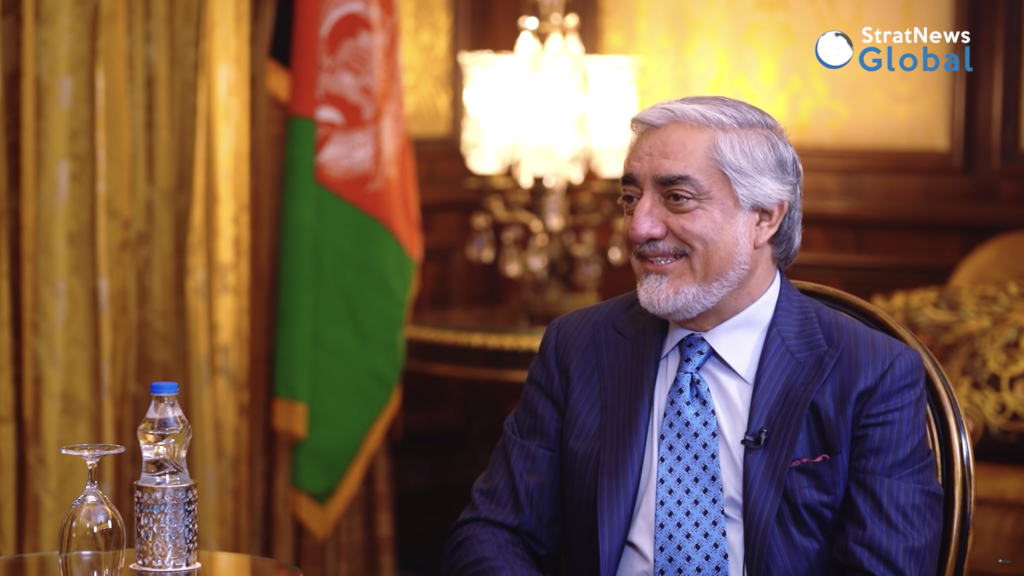
“The (Islamic Republic of Afghanistan’s) negotiating team (with the Taliban in Doha, Qatar), the peace ministry and the High Council (headed by Abdullah) are one structure,” he insists, adding, “our negotiating team is not like a monotone or monochromatic like the Taliban.“ Answering a follow-up question on the team mostly being appointed by the Presidential Palace, Dr Abdullah says, “they’re not just representing the government of Afghanistan, they’re also representing different political entities, political constituencies, women and youth. That’s how Afghanistan needs to be.” He adds, “that’s their strength. They’re working very diligently, patiently, hopefully and with a lot of flexibility, in a lot of innovative ways of dealing with issues, being creative in their approach, being human all the time, and presenting that face of Afghanistan. We are proud of them and they have proved those predicting that to be different, wrong.” On the Taliban being united as opposed to the Republic’s team, Dr Abdullah says the Taliban are, “very similar to one another in terms of approach, in terms of their thinking. But, in a democratic system the people have learned to criticise, to be criticised, to oppose, to be opposed. You don’t expect the same nature (in both sides).”
The 'Eye' of the story not the 'I' of the story. That's Amitabh Pashupati Revi's credo from the beginning of his professional journey in 1995. From conflicts in the war zones of Afghanistan, Syria, and Iraq to nuances of international politics in the Maldives,Thailand, and South Sudan, Amitabh has reported from all the world's continents, except for Antarctica(so far). Though, he has documented the world's third pole, the Siachen Glacier!
Amitabh reports and produces documentaries on the two-front China-Pakistan threat to India. His ground reports from Arunachal Pradesh and Ladakh have received viewership in the hundreds of thousands. Amitabh has interviewed world leaders, top global analysts, and experts in India, Russia, the United States, and Australia as well. Along the way, he’s picked up the Russian language, the Ramnath Goenka Award for his reporting on the 'Islamic State' terrorist group in Iraq, the Khaled Alkhateb Award for his reporting from Palmyra, Syria, and the UN Dag Hammarskjöld Distinguished Journalist Fellowship. Last but not least, as a founder member of StratNews Global, Amitabh helps lead the reporting, editorial, production, and administration teams at StratNews Global, BharatShakti, and InterStellar on their journey ahead.


